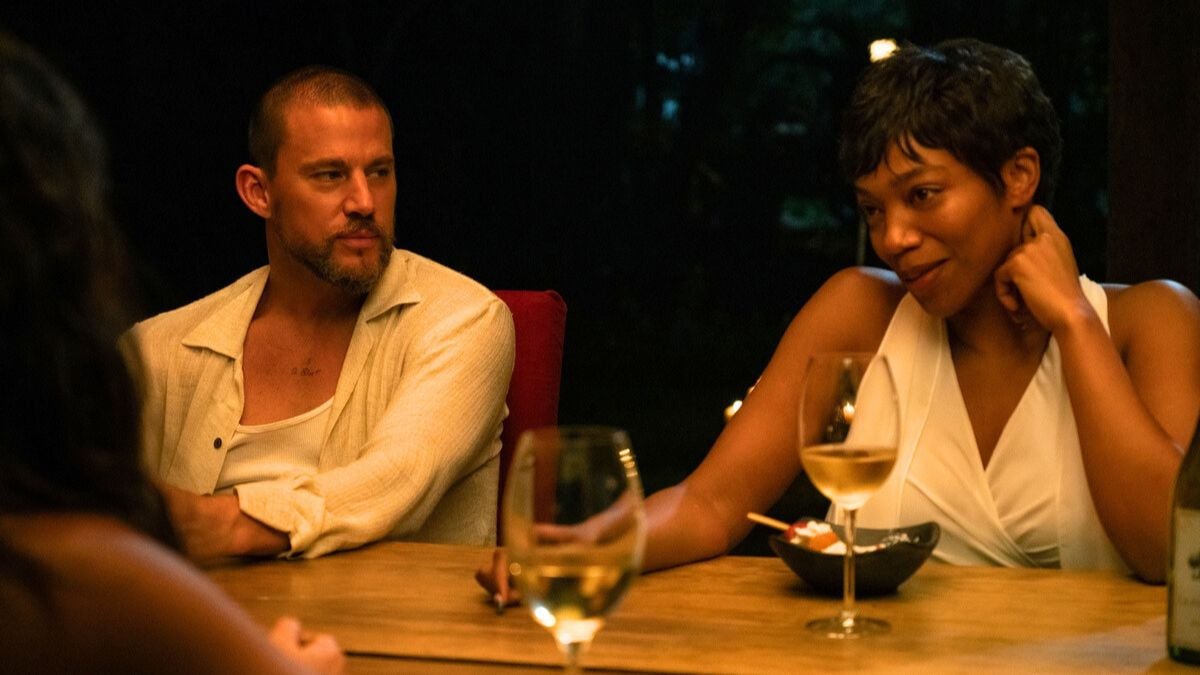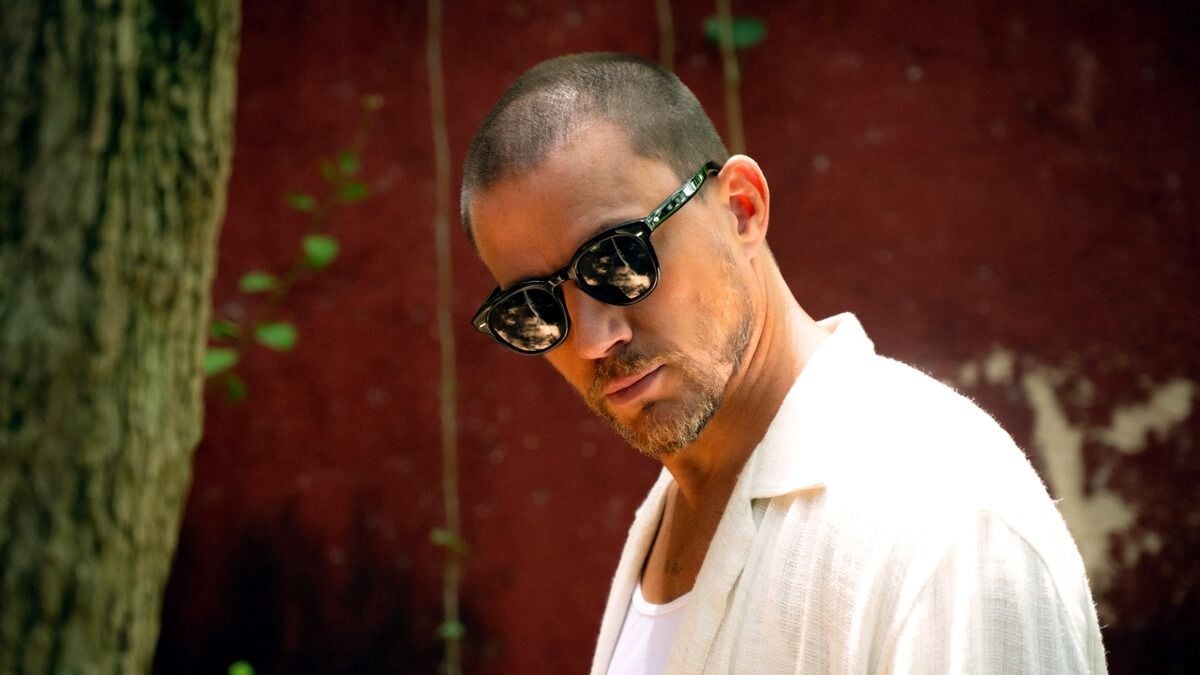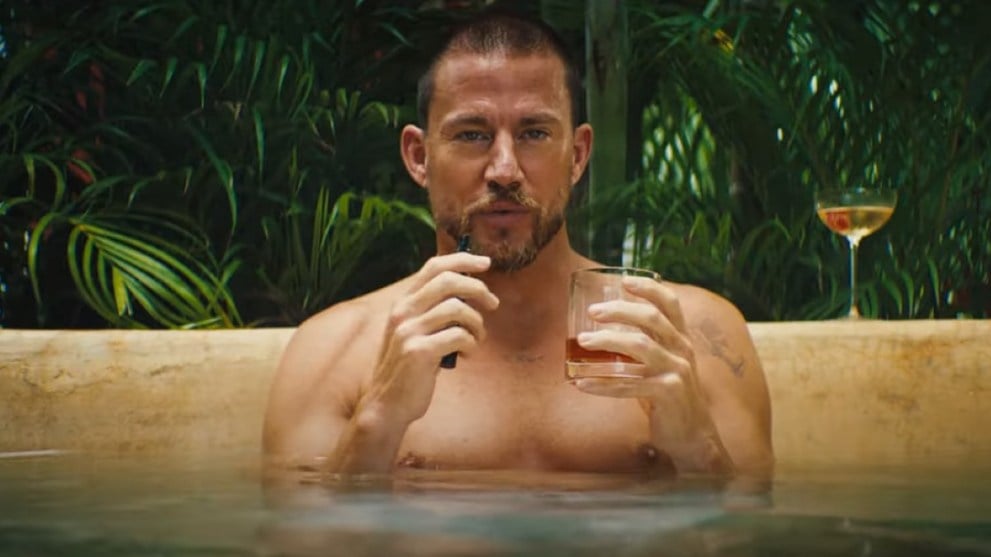Previously known as Pussy Island, Blink Twice shows Zoë Kravitz‘s exceptional filmmaking skills in her directorial debut. The movie also makes a compelling argument for giving Channing Tatum more antagonist roles.
In Blink Twice, Naomi Ackie is Frida, a waitress who daydreams about living a life of luxury like the one everyone seems to be living on social media. Her chance comes after she devises a daring plan to infiltrate the gala of Slater King (Tatum), a handsome, reclusive billionaire who lives on a private island away from public scrutiny. The naive party crasher gets more than she ever hoped for when Slater invites her and her colleague Jess (Alia Shawkat) to return with him to his island. Of course, they are both eager to jump at the opportunity of a lifetime.
Blink Twice’s premise already lets audiences know what to expect. Frida and Jess are nobodies taken to an island without internet reception, where they are asked to give away their phones. Lured by fancy clothes, haute cuisine, and designer drugs, the duo enjoys every day as a repeating dream. Yet strange things happen on the island, teasing the dark purpose of the tropical paradise. The movie follows Frida as she unravels the mystery, building up the tension until all hell breaks loose.
Unless you’ve been skipping every buzzy release of the past decade, Kravitz’s directorial debut will most likely feel familiar. After all, this is not the first time innocent people are dragged into a puzzling conspiracy that doubles down as an analysis of a social issue. As such, for better or worse, there will be direct comparisons between Blink Twice and Don’t Worry Darling, and The Menu, to name a few. That doesn’t mean Kravitz’s movie has nothing fresh to say.
From the opening scene, where Slater apologizes for his reckless behavior, Blink Twice makes it clear this is a movie about Western sexism and how men in power think they are entitled to objectify women. It’s also about how the immorally wealthy commoditize human lives for their pleasure. More interesting, though, is how Blink Twice discusses accountability in the post #MeToo world.
Oppressive systems tend to evolve, finding new crevices into which they can slither their tentacular reach. That’s also true for the patriarchy, with people appropriating social media as a means of building their apologetic and rehabilitated image after their scornful behavior is exposed. This tension is at the core of Blink Twice, allowing it to offer a contemporary tale of gender struggles.

Nevertheless, the most intriguing aspect of Blink Twice’s script is how it shows the impact of social media on abusive cycles. For instance, some could argue that peer pressure is less relevant in an era where everyone has recording devices in their pockets, and cancel culture is a thing – no one wants to go viral for forcing another person to do something against their will. Yet, Blink Twice shows how peer pressure is fed by the high expectations set by social media.
Every day, we are bombarded by videos, pictures, and posts that reflect a life standard everyone should supposedly strive for by any means necessary. So, when someone in power tells Frida she’s free to do whatever she wants, the waitress feels she must put herself in danger if she ever wants to fit in. In short, Frida makes questionable choices, pressured by people who can keep pretending to be kind and comforting when everyone knows what’s truly at stake, and what refusing another pill means.
With such a rich tapestry, Blink Twice‘s story could have invited the audience to weigh in on its themes. Instead, the movie underestimates the viewer, and adds many dialogue lines that explain the subtext without pushing the story forward. These “on the nose” moments represent the worst aspect of Blink Twice, which is otherwise an engaging psychological thriller. This is the first feature script signed by co-writers Kravitz and E.T. Feigenbaum, which explains the movie’s visible anxiety about ensuring everyone gets the message. Still, more confidence would make Blink Twice hit harder as a viewing experience.

Even if Blink Twice’s script is far from revolutionary, Kravitz is an overachiever in direction. Although this is her first movie, Kravitz imprints her voice in dynamic camera work and meticulous framing, creating beautiful images overflowing with intention. Everything has a purpose, and Blink Twice is the rare movie that fits perfectly in its runtime, unraveling everything it teases without unnecessary bloat. That’s quite a feat for a directorial debut, and points to a promising career for Kravitz behind the camera.
Furthermore, as a thriller, Blink Twice has a long build-up, during which Kravitz sows mistrust long before the audience reaps the horrors hiding beneath the surface. The payoff reveals the unnerving truths of Slater’s island, forcing you to rethink the seemingly unremarkable visual clues Kravitz planted since the beginning. When Frida’s vacation spirals out of control, Kravitz masterfully reframes the ordinary to make it look scary, conjuring a sense of foreboding that renders the theater atmosphere thick with unease.
Beyond its script’s shortcomings, Blink Twice is fun to watch because Kravitz runs a tight ship. The sound work is marvelous, and the editing quickly jumps between scenes without ever harming the pacing, giving the movie energy it sustains until the credits roll. Nocturnal scenes could use additional lighting, but that issue has plagued Hollywood for quite some time, especially in genre cinema.

It’s also interesting to approach Kravitz’s directorial debut, knowing she has much experience as an actress. That’s probably why she squeezes brilliant performances from the whole cast. Ackie’s Frida is, as expected, at the front and center, embodying the delusions of a blue-collar worker who feels in her bones she deserves a lavish lifestyle. Adria Arjona also deserves special praise for her role as Sarah, a jealous woman competing for Slate’s affection. Especially in the final stretch of Blink Twice, Arjona becomes quite the show-stealer.
The movie’s biggest surprise, though, is Tatum. Due to his dreamy complexion and friendly personality, Tatum is almost exclusively cast as a heroic figure with a great sense of humor. He has proved himself to be a fabulous action man several times, and it’s always a delight to see him cracking jokes in comedy productions. However, he was never asked to play a dubious character like Slater.
In Blink Twice, Tatum plays a billionaire with sweet words and a shiny smile, who the whole world sees as a reformed playboy. He’s self-conscious, empathic, and supportive. Yet, in each scene, Tatum must show hints of a dark persona beneath the façade of a nice guy, since Blink Twice’s plot revolves around the question of whether – and how – Slate is a villain. That’s a tough act to balance, but Tatum knocks it out of the park.
Tatum’s performance is nothing short of extraordinary, and a particular monologue in the third act is just chilling. Hopefully, after Blink Twice, Hollywood will allow Tatum to stretch different acting muscles, because he’s proven he can take much more than he’s been given so far. So, while there is a lot to love in Blink Twice, Tatum’s presence alone is more than enough to justify the ticket price.

- Zoë Kravitz's impressive directorial skills and visual style
- Channing Tatum's exceptional performance in an antagonist role
- Strong performances from the entire cast, especially Naomi Ackie and Adria Arjona
- Engaging build-up of tension and mystery
- Thoughtful exploration of contemporary social issues
- Effective sound design and editing
- Familiar premise that invites comparisons to other popular films
- Occasionally over-explanatory dialogue that underestimates the audience
- Nocturnal scenes could benefit from better lighting











Published: Aug 22, 2024 07:10 pm